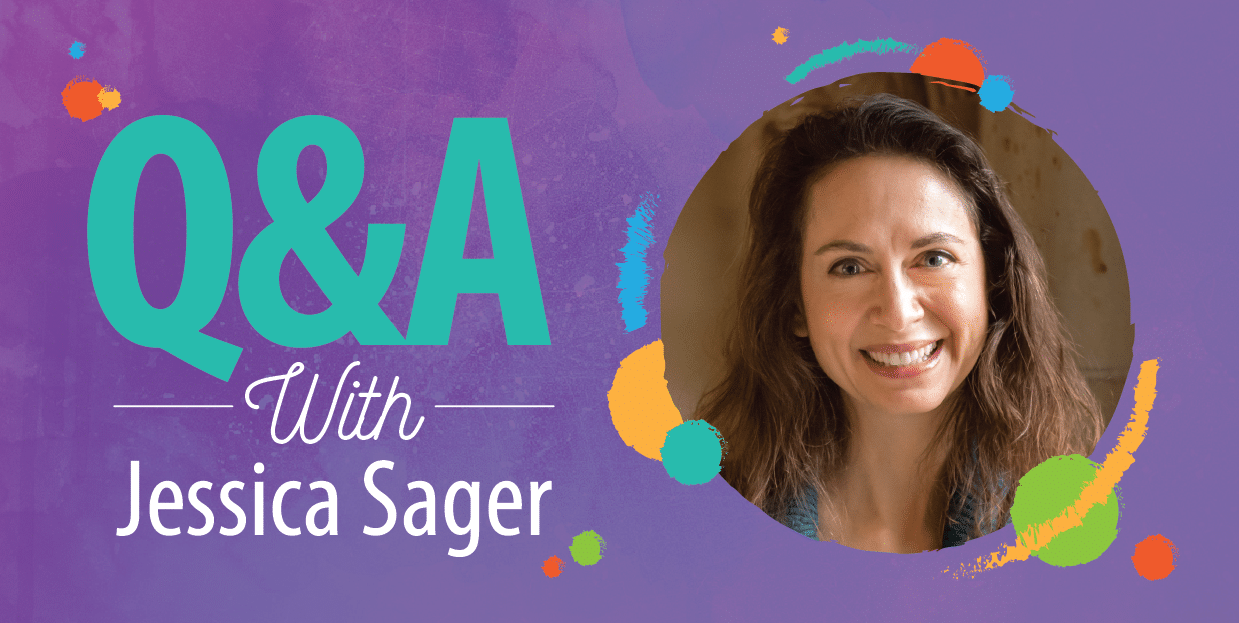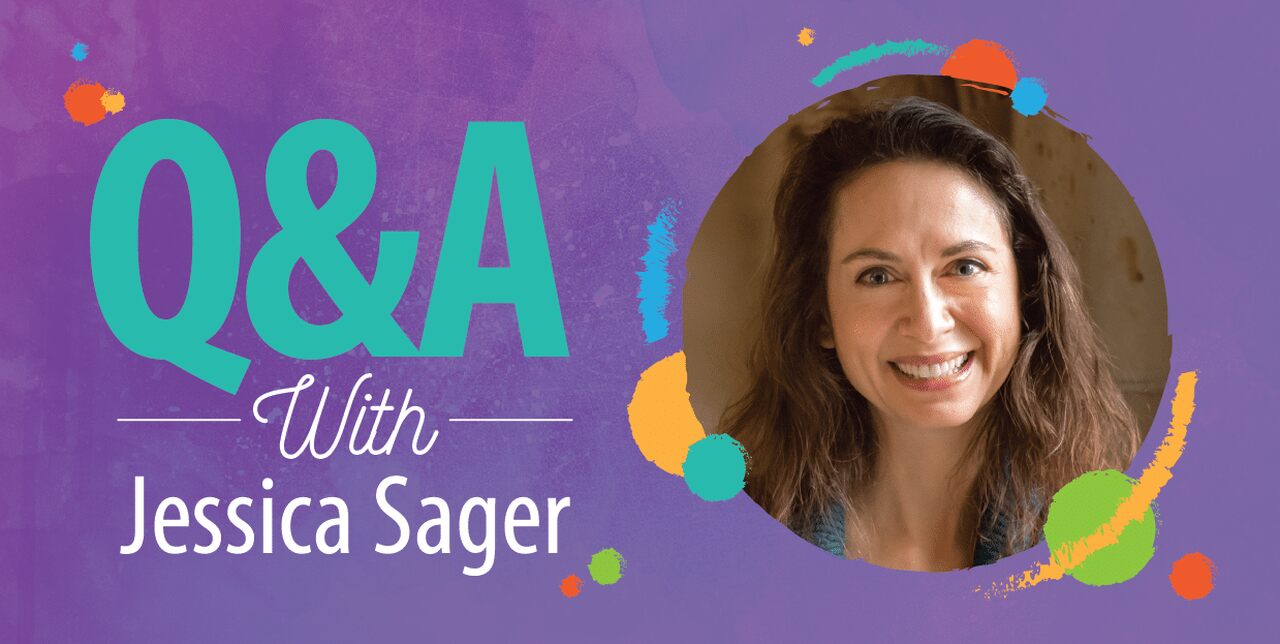
The availability of affordable child care in the United States has reached a crisis point. Faced with a scarcity of options, parents increasingly have to make impossible choices between affordability and quality. Waiting lists to get a child into center-based care can take months or even years. Given that, many look at Family, Friend, and Neighbor (FFN) care and family child care (FCC) as more flexible options to meet their child care needs. We spoke with Jessica Sager, co-founder and Chief Executive Officer of All Our Kin, an organization that trains, supports, and sustains community child care providers, to learn more about the problem and how FCC providers are an important part of the solution.
Can you explain why FCC providers are uniquely positioned to be part of the solution to the child care crisis?
The COVID-19 pandemic has really illuminated and exacerbated the gaps in our child care system, while at the same time affirming the critical role that family child care plays in supporting children, families, and communities. While many child care centers and school-based programs across the country have been ordered to close, family child care providers have received little guidance from public officials and find themselves struggling with competing priorities: public health, economic necessity, and the strong responsibility they feel to families and to their communities. We know that many are choosing to stay open to care for the children of our frontline workers.
In this climate, all of the things that make family child care so special are particularly important. Families take comfort knowing that their children, from infancy to school-age, are together in a small, warm, familial home setting that reflects culture and values that mirror their own. For parents working nontraditional hours — including so many of our healthcare professionals — the flexible scheduling offered by many family child care providers is a lifesaver. And having a family child care option right in the neighborhood where they live or work is especially important for families that don’t have access to reliable transportation. Now and always, family child care is meeting the needs of the children and families that face the greatest barriers to accessing care.
[quote]
What are some common reasons people choose to become family child care providers?
Anecdotally, we know that many of the family child care providers in our network are parents themselves who started their family child care business because like many other parents, they struggled to find safe, affordable, quality child care for their own children. These providers don’t want other families in their community to face that same challenge. They open their programs so that parents can go to work confident that their children are in a loving, nurturing, educational space with all of the comforts of home.
What percentage of FCCs are typically licensed? What are the barriers that might keep a provider from becoming licensed or engaging with a state’s quality rating and improvement system?
The terminology and requirements around licensure vary so greatly from state to state that it’s difficult to talk about percentages. What we know is that there are about 1 million paid home-based child care providers across the country, and of the 11 million young children with working mothers, about half spend more time in these home-based settings than in any other child care arrangement.
We are seeing that the number of licensed family child care businesses is declining at an alarming rate across the country — but it doesn’t have to be that way. Over a 10-year period, Connecticut lost approximately 34% of its licensed supply of family child care; but in New Haven, where All Our Kin was primarily operating at the time, the licensed supply increased by 74% as a result of our work. That’s because we offer individualized, relationship-based support — rooted in a deep respect for the unique backgrounds and strengths of each prospective provider, and offered in the languages that they speak — to help them move through the state’s licensing process. We take what can be a very intimidating, bureaucratic process and break it down into something that feels manageable, while providing support and mentorship along the way.
And we know that these principles, when applied to everything from licensure, to professional learning, to quality rating and improvement systems, can transform the way that family child care providers engage. Family child care providers can and will rise to the absolute highest levels of quality — but they need and deserve resources and support that are specifically tailored to home-based child care settings to help them get there.
Beyond licensure, what are some other challenges FCC providers face?
The child care system (or lack thereof) is seriously underfunded; this is particularly true for family child care. And I think it says a lot about the way we will still devalue women’s work – especially the work of women of color, who make up a significant portion of child care workers — in this country. As a result, family child care providers do not receive the compensation they deserve, and often struggle to sustain in a world where increasing requirements are not coupled with increased resources and support. That’s why an important part of what we do at All Our Kin is work to transform the narrative — changing hearts and minds about the power and potential of family child care.
At All Our Kin, how do you think about designing broad support systems and adapting them to different local contexts?
We had to do a lot of thinking about this when we opened our first office outside of Connecticut in the Bronx in 2018. We were entering a new regulatory environment, and needed to figure out how to adapt the different pieces of our model so that it would make sense in New York City. We learned that although implementation might look different, the core values and principles guiding the work remained the same. For example, systems of support must be designed to support providers at every stage of their careers, to support them in their dual role as educators and entrepreneurs, and to work for their real lives. And, the supports offered must be of the highest quality, must be holistic and strength-based, must reflect the latest research in the field, must be rooted in adult learning theory, and must be responsive to the needs of providers. Above all, systems of support should be designed with equity at the center, ensuring that they meet the needs of the family child care providers, children, and families that face the greatest barriers to access.
What kind of national policies might better support your work?
In light of the current public health crisis, we are joining national advocates in asking for substantial emergency stimulus funding to keep the child care industry from collapsing. We are grateful to Congress for the bipartisan passage of the CARES Act, which includes $3.5 billion for the Child Care and Development Block Grant (CCDBG) and $750 million for Head Start. This funding can be used by states to sustain child care providers across settings in the event that they need to close, while also supporting the acute needs of providers that choose to remain open to provide care for our frontline workers. Still, we know that significantly more federal funding is needed. The COVID-19 pandemic is exacerbating many of the policy challenges that already faced family child care providers, including low compensation, lack of access to health and mental health consultation, and lack of clear, tailored resources and information. That said, we will be advocating for more child care funding in the next COVID-19 relief package.
More broadly, it is my hope that we will move towards significant federal investment in a mixed-delivery universal child care system, starting at birth, that includes and values home-based child care and ensures that family child care providers get the compensation, resources, and support they deserve for the difficult and important work that they do. The system should build on key policies that are already in place — like the federal Child Care and Development Block Grant — to ensure that all families have access to high-quality child care that meets their needs.
We discussed how to integrate professional development for family child care providers into statewide systems during a recent webinar. Catch up on the conversation!
What do you see as the critical components of professional development for family child care providers?
The design and implementation are really important. Professional learning opportunities should be offered at nights and on weekends, in the communities where providers live and in the languages they speak, and at low or no cost. And at All Our Kin, we are a big believer in food as a way to bring people together! We think it’s important to have a hot meal available for providers when they are attending a training after a long work day.
In addition, the content should be high-quality, engaging, and tailored to home-based child care settings. One size does not fit all. The trainers should understand and reflect the family child care community, and family child care providers themselves should be given opportunities to share their knowledge, skills, and expertise as trainers and peer mentors — and they should be compensated for doing so!
Anything else you’d like to add?
Finally, there is a growing recognition from policymakers of the important role that family child care plays in a comprehensive child care system that meets the diverse needs of all families. In response to this, All Our Kin created a policy framework to guide state and local leaders who are eager to create the conditions for family child care to thrive in their communities. The framework presents a bold vision for family child care, and offers concrete strategies and recommendations for realizing that vision. You can find the full report here; we invite anyone who has questions about the framework to reach out to policy@allourkin.org.
[about]





